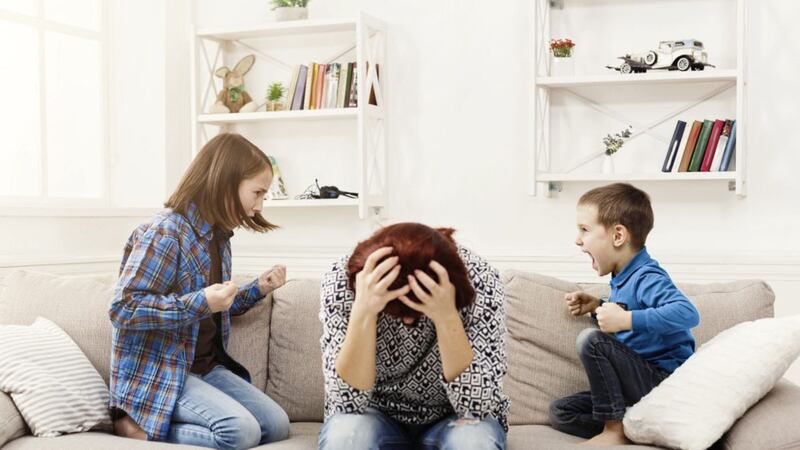THIS lockdown seems a lot harder than the others. Perhaps it's the relentless nature of them. Perhaps it's the weather. Perhaps it's the prospect of another few weeks of home schooling. Perhaps it's financial worries. Perhaps it's the thought at the back of your mind that screams, 'will this ever, ever end?'.
Parents tend to make sure that the kids, their elderly relatives, the house, all the practical stuff is all taken care of before they look to themselves and what they might need to help get them through.
I know that a lot of parents are struggling at the moment, managing anxiety and stress, and just trying to get on with things. The lockdown has taken away an entire dimension of activities that many of us would have leaned on to alleviate stress. We can no longer meet friends for a coffee and put the world to rights. We can no longer socialise and enjoy dinner and a few glasses of wine with friends after a tough week. We can't call around to a friend's house for coffee and a chat. We have lost a lot of connections that were crucial to us, some we might not have realised were so important.
Those connections will return, but in the meantime it might be worth trying to embrace new coping strategies that can help support our mental health and reduce stress levels. Yours might be walking or running or just taking five minutes to yourself for a cup of coffee. It might be catching up on Zoom with your friends on a Friday night or meditation and mindfulness, yoga or Pilates. Whatever works for you, do that.
The NSPCC has some very useful tips on their website (nspcc.org.uk) to help parents nurture their mental health during this surreal time.
If you're able to be physically active, this might help your mental health. It also helps boost your immune system and can help encourage your children to exercise too. You could try walking, going for a jog or run, or find an online class.
If you're not able to be physically active for whatever reason, there are other things you can do that might help, like gardening, sitting next to an open window to get some fresh air or doing a mental exercise like a crossword or word search.
Try to maintain a regular sleeping pattern if possible. The NHS have some helpful tips here: nhs.uk/live-well/sleep-and-tiredness/how-to-get-to-sleep/. Keep in touch with family and friends on the phone or try a video call. It's important to be healthy and eat well. We know it's not easy for everyone, especially at the moment, and if you are struggling with getting essentials your local food bank will be able to help.
Keep a journal. Writing down your feelings can help you reflect, understand and let go of emotions. Create mini-zones in the home where possible, allowing everyone to have space. If this isn't possible, try spending set amounts of time in different rooms if you can.
Try to have some time for yourself, whether that's within your home or by going for a walk.
If you have children who would usually be at nursery, childminder, school or somewhere else during the day, you might have suddenly found your normal routine has changed a lot and are feeling extra pressure. It's normal to feel anxious, overwhelmed or stressed by big changes. Remember to be kind to yourself and reflect on what you can do.
Managing how you keep on top of the latest news can help reduce anxiety. You could create limits on how much time you spend on social media and set one or two specific times of the day you check the news. Staying up to date can help you support children with any questions they may have but it's also important to take care of your own wellbeing.
Making a plan of things to do by yourself or with your child can help create structure and a routine for the day. Try starting your day with a short list of four small, achievable things you'd like to do. If there's another adult in your house or older children, ask them to play an active part too.
However, if you're struggling with your mental health and emotional wellbeing, it's okay to do the best you can and recognise there will be good and bad days.
And finally, reach out if you need help. The NSPCC's helpline counsellors are there, whatever your worry. You can call them on 0808 800 5000 or email help@nspcc.org.uk.
And if you are experiencing distress or despair, Lifeline is there – you can contact them on 0808 808 8000.








